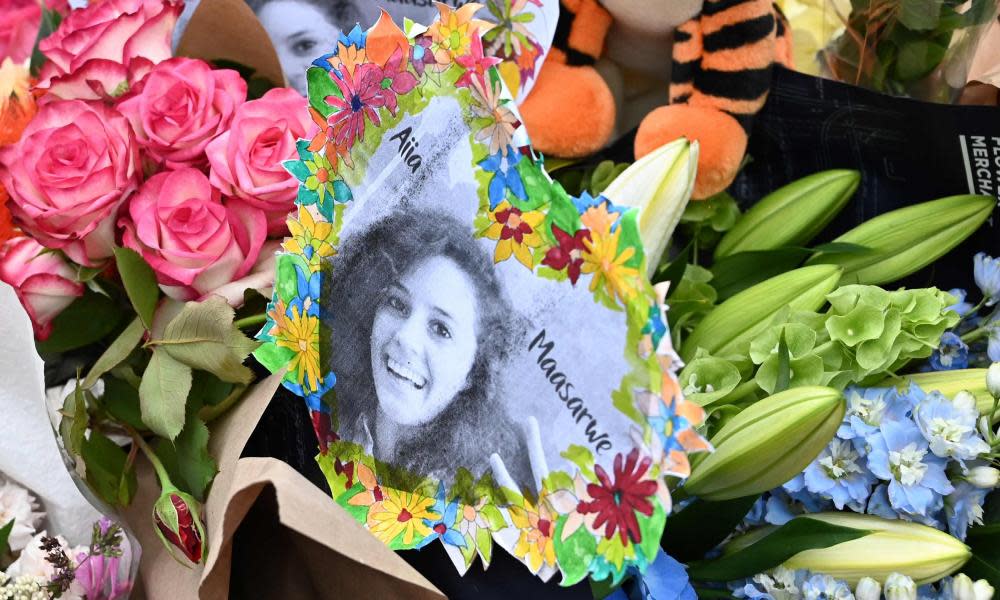'An angel, a diamond': Aiia Maasarwe's Palestinian identity was erased after her death

The senseless killing of student Aiia Maasarwe last week was a bitter reminder that women can have their lives pointlessly cut short by men, even when walking along streets they have memorised.
The alleged rape and murder of Maasarwe is one of several brutal attacks on women in Melbourne in recent years, with Eurydice Dixon and Jill Meagher meeting similar fates. It has left women once again asking ourselves: where are we safe? Where do we go from here?
It was also a reminder of how news reports can erase Palestinians so easily, with multiple Australian media outlets describing 21-year-old Maasarwe as Israeli or Arab-Israeli, when she was in fact Palestinian. A Palestinian with Israeli citizenship.
It does not and should not matter where Maasarwe comes from. No human should suffer what she did. What matters, however, is identifying people correctly, and at the very least honouring that in death. Particularly when Palestinians living under Israel’s government overwhelmingly reject being called Arab Israelis.
According to a survey by University of Haifa professor Sammy Smooha, only 16% of Palestinians living in historic Palestine – now modern-day Israel – accept the term Arab-Israeli, which is a label prescribed by the government of Israel.
The preferred terms include Palestinian citizen of Israel or Palestinian with Israeli citizenship. Arab-Israeli is a vague and politically loaded descriptor, and the very exclusion of the word Palestinian is a political statement which erases Palestinians.
Several Australian media outlets showed that by using Israel’s official terminologies, without dissection, they either do not understand or even purposely reject the realities on the ground for Palestinians – whether in Israel, West Bank, Gaza or the refugee diaspora.
Israel’s towering concrete separation wall passes through Maasarwe’s home city of Baqa al-Gharbiyye, dividing it from its sister city in the West Bank, Baqa ash-Sharqiyya. The people who ended up on either side of the separation wall are Palestinian. A barrier and an Israeli passport does not transform a Palestinian into a generic Arab.
“First, we are all human beings. Then we are Muslim. Then we are Arab. We are Palestinian,” a family member of Maasarwe’s from Baqa al-Gharbiyye told me last week.
“This is our political situation [having Israeli passports], but this is our identity [Palestinian] ... We cannot change the political situation.”
And by that same token, they cannot change who they fundamentally are.
A friend of the family also told me: “We have Israeli passports but Palestine is in our hearts.”
It is significant to note that Israel’s recently passed nation-state law, which declares it a Jewish nation, excludes Palestinian citizens of Israel and non-Jewish citizens of Israel. The law underscores numerous policies that discriminate against Palestinians because they are not Jewish-Israelis.
It is more than a national identity – it is an ethnic and geographic descriptor.
My family is originally from Palestine, long before the state of Israel was created. While we cannot return due to Israel’s absentee property law that stipulates exiled Palestinians cannot reclaim our land back, we are still Palestinian.
The decades of statelessness did not nullify my family’s Palestinian identity. It was not cancelled, like some newspaper subscription. If both sides of my family remained in what then became Israel, they would still be Palestinian. So why do people insist this does not exist? Why the historical revisionism?
In the week since Maasarwe’s body was found in Melbourne, the Israeli government has reportedly not reached out or made any contact with Maasarwe’s family. Speaking to reporters on Sunday, her sister Noor said only Australian authorities and police were in regular contact with the family.
Would this be the case if they were Jewish-Israeli?
Noura Mansour, a Palestinian educator with Israeli citizenship living in Melbourne, said the murder of Maasarwe hit close to home.
“You can’t shake the feeling that … there is no place you can go that is safe for a woman,” Mansour said.
“I [also] can’t shake the fact it’s political, everything becomes political – we can’t even die and have people accept us for who we are.
“The fact is Aiia is Palestinian and also an Israeli citizen. Both of these things are facts. They are not mutually exclusive. That’s just the reality of the complexities back home in Palestine 48, or Israel.
“It’s sad that people insisted on not accepting who she was even though it was pointed out to them multiple times.”
Identity aside, Maasarwe was more than her ethnicity or passport. She was a bright young student who could speak Arabic, Hebrew and Mandarin, and a beloved daughter, sister and friend. She was kind and smart and funny. “An angel, a diamond,” family described her. “A human,” her father said to me.
We should honour her memory by giving a full picture of who she was.
Jennine Khalik is a Sydney-based journalist.

 Yahoo News
Yahoo News 
